written by: Katherine Simpson, Gordon College Spring ‘19 cohort
Having finished our first class block in Zagreb with a flurry of late-night paper-writing, we were thrilled to be greeted by the clear waters of the Adriatic sea off the island of Vis. Removed from the hustle bustle of Zagreb, we were able to take time to reflect on our experiences in Croatia, to explore related topics through our majors, and to get some sun.
Komiža, Vis
The other political science students and I have spent the last three weeks studying theories of justice, while our colleagues from the sociology department and peace and conflict minors were studying conflict transformation and reconciliation.
After our separate classes in the morning, we came together with our visiting professors, Dr. Paul Brink (Gordon College) and Dr. Judith Oleson (Boston University), to compare notes on our morning’s discussion. We have discussed topics as diverse as religious reconciliation, the implications of group-based or individually-based identity structures for peacemaking, and the influence of gender and class on peacemaking.
Group discussion
Reflecting on the diversity of opinions present just within our small group, I am struck by the wisdom and thoughtfulness that each individual’s life experience is so unique and valuable. Compounding the intellectual engagement of our program with the opportunity to build relationships with nine of my fellow students has been one of the most rewarding experiences of my life. Even with the risk of sounding overly sentimental, I can safely say that my fellow students have made my experience in the Balkans. It has truly been a blessing to study, to explore a new country and culture, and to enjoy some quality time at the beach with these nine individuals.
From my friends in the sociology department, I have learned how to thoughtfully question the invisible structures around me every day. My international friends have taught me how to make a home anywhere I go—whether that be our three months home in Zagreb or the more intangible home of a loving community. From my optimistic friends, I have learned to be more hopeful of our capacity to do good.
Because of each persons’ uniqueness and because perspectives vary greatly from person to person and even from day to day, it has truly been enlightening to have conversations at classes and at home, on buses and trains, and walking the wooded path up to our center every day. I came to the Balkans to have these conversations about war and peace, faith and reconciliation, and justice and love; however, I am far from any answers. Each conversation seems to lead to more questions, yet this is hardly a cause to lose hope. I find myself more and more confident that in starting conversations and asking questions, at the very least the cohort and I have embarked on the road to peace.
To sum up, I will quote the last three verses of Maya Angelou’s “A Brave and Startling Truth”:
“We, this people, on this small and drifting planet
Whose hands can strike with such abandon
That in a twinkling, life is sapped from the living
Yet those same hands can touch with such healing, irresistible tenderness
That the haughty neck is happy to bow
And the proud back is glad to bend
Out of such chaos, of such contradiction
We learn that we are neither devils nor divines
When we come to it
We, this people, on this wayward, floating body
Created on this earth, of this earth
Have the power to fashion for this earth
A climate where every man and every woman
Can live freely without sanctimonious piety
Without crippling fear
When we come to it
We must confess that we are the possible
We are the miraculous, the true wonder of this world
That is when, and only when
We come to it.”



